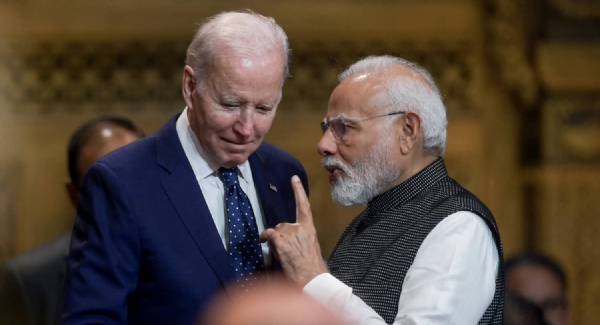Politically Motivated Criticism
US Secretary of State Antony Blinken's recent criticisms of India, based on the State Department’s annual International Religious Freedom Report, appear politically motivated. These remarks coincide with the Indian Prime Minister’s potential visit to Moscow, highlighting USA attempts to pressurise India.
A Pattern of Unsolicited Advice
The United States has a history of issuing unsolicited advice to sovereign nations based on self-certified reports. This pattern continues with the latest report, which has been criticized by Indian External Affairs Minister S. Jaishankar and Bangladeshi Prime Minister Sheikh Hasina for its coercive and interventionist nature.
Impact on International Relations
Despite the critical tone of these reports, they have little tangible impact on international relations.
Typically, the Indian government responds with a statement denouncing the report as biased, but no substantial counter-study is provided to challenge the American narrative.
Geopolitical and Economic Dependencies

The Indian government remains focused on diversifying its defense procurement away from Russia while maintaining friendly relations with the US. The American administration, meanwhile, expresses its dissatisfaction with India's geopolitical strategies through reports and press conferences, often based on skewed statistics.
The Democrat Government's Stance
The current US administration under President Biden has been particularly critical of India's rise. Reports on religious freedom contain inaccuracies and lack thorough analysis, reflecting a broader confusion in American foreign policy.
Misrepresentation of Facts
The report's portrayal of religious freedom in India often lacks factual accuracy. For instance, it exaggerates the scale of Christian protests in New Delhi and criticizes laws against forced religious conversions without acknowledging the broader context of religious tensions in the region.
Ignoring Other Minorities
While the report focuses extensively on perceived issues faced by Muslims, it overlooks the challenges faced by other minority communities in India, such as Parsis and Jains, who receive little political attention or protection.
Questionable Neutrality
The neutrality of the report is questioned due to the involvement of officials with specific religious and political backgrounds, such as Rashad Hussain, the US Ambassador-at-Large for International Religious Freedom, whose past affiliations suggest potential bias.
Propaganda and Lack of Counter-Narratives
The US State Department's reports, along with those from the USCIRF, are often seen as political propaganda. The Indian government has labeled the USCIRF as a biased organization, pointing out its connections with influential donors and religious networks. Despite these criticisms, these reports remain influential due to the lack of alternative studies.
The Need for Balanced Studies
In an interconnected world, there is a pressing need for more balanced and intellectually rigorous studies on religious freedom. Without these, indigenous faiths and communities risk being misrepresented and marginalized on the global stage

No comments:
Post a Comment